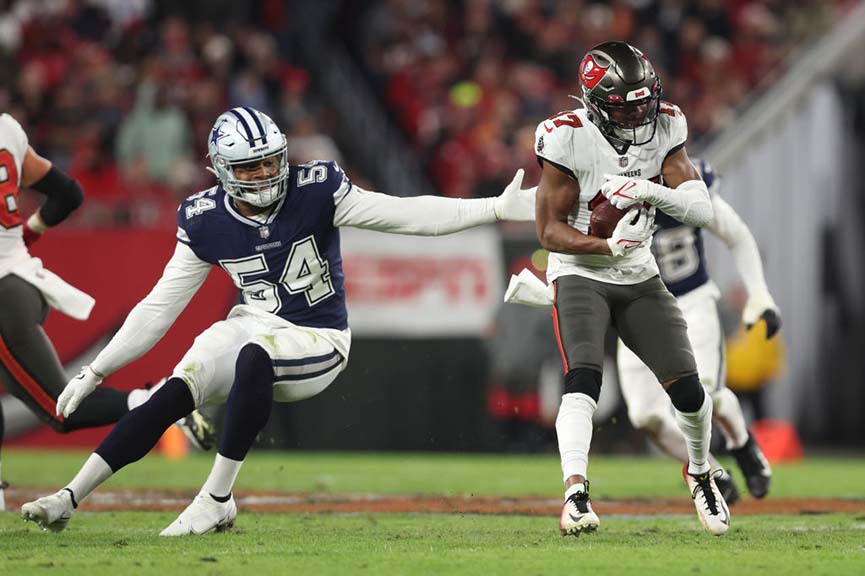
It’s no secret that no one’s been more aggrieved by TV’s shift to streaming than the great American sports fan.
Their litany of complaints seems endless, but it mostly stems from the fact that what was once easy, seamless and relatively cost-efficient is now none of those things, and that no one in charge really seems to care.

This hasn’t been a hard and fast fall, but rather one of those death-by-a-thousand-cuts things, where little by little the indignities have added up.
Regional sports networks (RSNs), once a deciding factor in which cable system to subscribe to, are now packing it in and launching their own streaming apps. Or going bankrupt doing so. Or both.
Sports like football and baseball have slowly been migrating over to streaming services that are not free, that need installing and that require the creation of easily forgotten passwords. And that’s not to mention the ability to shift the picture on the TV from the set top box to some sort of streaming device.
That would be fine if the average age of football and baseball fans was 35, but it’s not. It’s closer to 55.
So there’s that.
Then there’s the fact that none of this would matter, at least not all that much, if there were an easy way to figure out where the actual game was playing and whether or not you had access to it — as opposed to a little bit of Googling combined with a little bit of trial and error and trying to find the password.
So there’s that, too.
Which is why I am still in awe of the chutzpah behind what pundits have nicknamed “Spulu,” the joint app that Disney, Fox and Warner Bros. announced in early February.
The app that’s likely to sell for a subscription of around $50 per month, The Wall Street Journal estimates.
Who Is This For?
The answer to that question, many suspect, is “Disney Shareholders.” Because the app seems to mostly exist as a press release, with dozens of unanswered questions ranging from “how much will it cost?” right on down to “you didn’t bother to tell the NFL about this because why again?”
But say it does exist. Who then, I keep wondering, is the target audience?
The hardcore sports fan, the dude or dudette who will gladly fork over $50/month for this sort of app, already has a better solution.
It’s called “cable TV” and they’re likely quite happy with it, thank you very much.
All the sports they ever wanted (and then some), all easily located in a single interface, all in more or less the same order they’ve been in for the past 20 or so years.
Now granted there are probably some hardcore sports fans who are unhappy with their current MVPD-based cable system and would gladly cut the cord.
But most will not, at least not until what they gain by making that move matches or, more likely, improves on what they have now.
This means they are far more likely to switch to a vMVPD like YouTube TV or Hulu Plus Live TV which not only gives them access to CBS and NBC, but also collects all their sports programming in one easy bucket. It also lets them feel like they are cutting the cord even though all they’re actually doing is trading one delivery system for another.
So again, I wonder, just who is that app supposed to be for?
All for One and One for All
The inability to pull CBS and NBC into the scrum — and it’s unclear whether that’s because no one asked them or because they refused — is a symptom of something bigger that is plaguing the industry: the seeming inability to actually cooperate even when doing so would clearly be in their best interest.
This stems from their frequent inability to identify Alphabet, Amazon and Meta as their real enemy, both in terms of ad dollars and attention.
Or to realize that as a joint force, they actually do have real power over the tech companies, if only for the simple fact that the media companies have built up an inordinate amount of goodwill over the years and that many people would like to see the tech behemoths fail.
Instead, they each act as if they are going to be the next Netflix and plot and scheme against each other.
That’s a behavior that, sadly, is unlikely to change.
Imagine though, a world where all five companies had agreed to cooperate. Had approached the leagues as a unit and said, “give us the rights and we’ll figure out how we’re splitting them up, and what we’re putting on streaming and where.”
And then went and did just that and allowed fans to buy a “sports subscription pass” that gave them access to all their games across all of their apps — ESPN and Max and Tubi and Paramount Plus and Peacock.
Something that seems far easier to implement and deploy than an entirely new app.
A fan can dream, can’t he?







